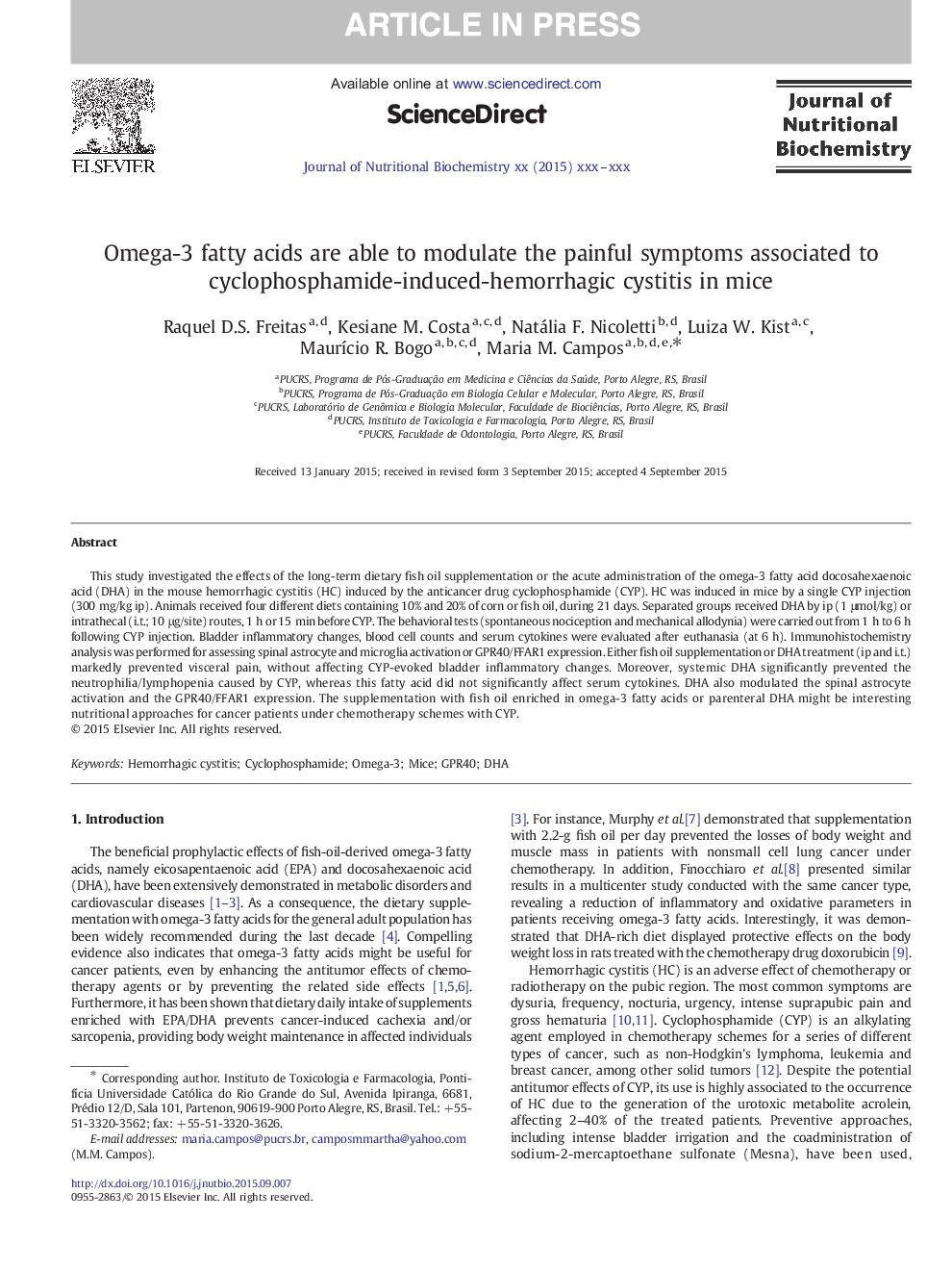| Article ID | Journal | Published Year | Pages | File Type |
|---|---|---|---|---|
| 8336718 | The Journal of Nutritional Biochemistry | 2016 | 14 Pages |
Abstract
This study investigated the effects of the long-term dietary fish oil supplementation or the acute administration of the omega-3 fatty acid docosahexaenoic acid (DHA) in the mouse hemorrhagic cystitis (HC) induced by the anticancer drug cyclophosphamide (CYP). HC was induced in mice by a single CYP injection (300 mg/kg ip). Animals received four different diets containing 10% and 20% of corn or fish oil, during 21 days. Separated groups received DHA by ip (1 μmol/kg) or intrathecal (i.t.; 10 μg/site) routes, 1 h or 15 min before CYP. The behavioral tests (spontaneous nociception and mechanical allodynia) were carried out from 1 h to 6 h following CYP injection. Bladder inflammatory changes, blood cell counts and serum cytokines were evaluated after euthanasia (at 6 h). Immunohistochemistry analysis was performed for assessing spinal astrocyte and microglia activation or GPR40/FFAR1 expression. Either fish oil supplementation or DHA treatment (ip and i.t.) markedly prevented visceral pain, without affecting CYP-evoked bladder inflammatory changes. Moreover, systemic DHA significantly prevented the neutrophilia/lymphopenia caused by CYP, whereas this fatty acid did not significantly affect serum cytokines. DHA also modulated the spinal astrocyte activation and the GPR40/FFAR1 expression. The supplementation with fish oil enriched in omega-3 fatty acids or parenteral DHA might be interesting nutritional approaches for cancer patients under chemotherapy schemes with CYP.
Related Topics
Life Sciences
Biochemistry, Genetics and Molecular Biology
Biochemistry
Authors
Raquel D.S. Freitas, Kesiane M. Costa, Natália F. Nicoletti, Luiza W. Kist, MaurÃcio R. Bogo, Maria M. Campos,
